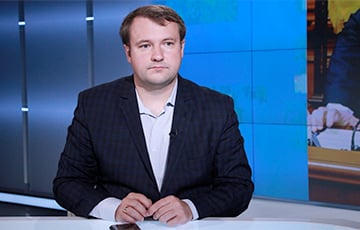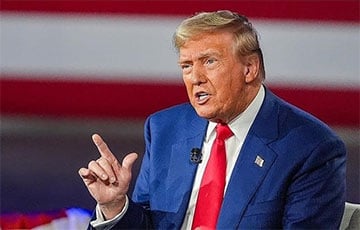‘Lukashenka Found Himself In Most Difficult Situation’
25- 13.08.2024, 20:15
- 56,758

The Ukrainian Armed Forces operation in the Kursk region made the Belarusian dictator think.
Why did Ukraine's allies react so calmly to the operation in the Kursk region of the Russian Federation, although they condemned the Ukrainian Armed Forces strikes on Russian territory?
What is the reason for the change in the West's position? Charter97.org spoke with Ukrainian political scientist, professor at the Taras Shevchenko National University of Kyiv Petro Oleshchuk:
— Several factors played a role here. Firstly, Ukraine has recently successfully carried out various operations on Russian territory. First of all, these are the SSU drone attacks on numerous military and strategic industrial facilities on Russian territory: airfields, long-range radar tracking stations, and so on.
Ukraine has significantly damaged the “red lines” that were built earlier. This showed that, in general, nothing terrible has happened, the Russian Federation is simply pretending that nothing is happening.
Secondly, everyone saw the entry of Ukrainian troops directly into the territory of the Russian Federation itself. And what was Putin's reaction? “An event occurred”. They immediately came up with newspeak for this topic: “an event in the Kursk region,” “voluntary evacuation.”
They once again showed that in any critical situation, the Russian government tries to hide the real scale of the problem and somehow show that they are in control, even if this is not the case. All this is very indicative and, probably, the West is also monitoring this.
They always support the winners. This is also very typical for the West. They can set up “red lines”nand restrictions as much as they want, but if you are successful, they will support you.
— Will the West overcome its fears of Russia, seeing that it is possible to raise the stakes, and Russia does not react to this course of events?
— Probably, not completely. So far, there is no decision regarding strikes by American and, in general, Western long-range missiles on the territory of the Russian Federation, so it is difficult to say anything about this.
However, of course, this will have a very significant impact on the overall reassessment of strategy, approaches and everything else connected with it.
I think that Lukashenka is in the most difficult situation right now. On the one hand, he sees how quickly trained armed forces can pass through territory where there are no such forces.
On the other hand, he saw how Putin “defends” his territory, and he will defend him much less effectively. Any kind of allied obligations are rather dubious, so his imagination can well draw some kind of advancement of various formations from neighboring states marching on Minsk.
Lukashenka is currently playing a rather interesting game. Perhaps he is holding some negotiations with various world players. This is also evidenced by his statement that “it’s time to get used to the fact that I am not forever and will leave.”
To be honest, I do not rule out that Lukashenka has something in mind. This entire march in the Kursk direction has given him a lot of food for thought.











